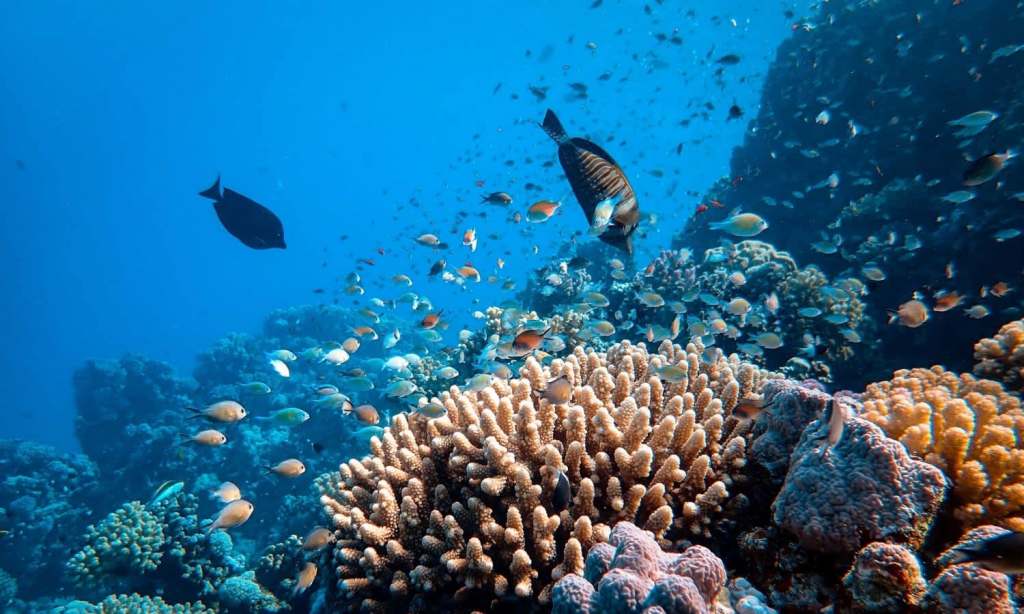Australia’s Great Barrier Reef has been struggling for quite some time, with climate change at the crux. The growing combination of rising sea temperatures, poorer water quality from sediment run-off, and pollution — as well as more severe cyclones and crown-of-thorns starfish outbreaks — are just a few of the threats to the reef’s safety and the marine life that depends on it.
We’ve known this for years. We know about the dying coral, about the water pollution thanks to soft plastic waste and the masses of carbon dioxide emissions increasingly heating up the oceans.
Mining and burning coal are some of the main carbon inducing operations, which have led to back coral bleaching in the Great Barrier Reef, and yet Adani’s proposed Carmichael coal mine in central Queensland is still in conversation.
Even so, the federal government is lashing out after UNESCO officially claimed the Great Barrier Reef is “in danger”.
UN body UNESCO said the reef should be put on a list of World Heritage Sites that are “in danger” due to the damage it has suffered, saying that key targets on improving water quality had not been met.
The purpose of UNESCO’s claim is to put pressure on Australia to take “action at all possible levels” on climate change and to do the obvious, acknowledge that the reef is in grave danger and implement actionable strategies.
But instead of taking it as a long-overdue reminder, the Australian Federal Environment Minister Sussan Ley is allegedly shocked by these allegations and believes them to be “politically motivated”.
She argues that Australia has been “singled out” against dozens of other World Heritage-listed sites also considered at risk.
The World Heritage Committee that makes up UNESCO is a 21-nation group chaired by China. It’s true that they have had a vexed diplomatic relationship with Canberra in recent years, but regardless of that, they’re completely right about the Great Barrier Reef.
I mean really, it’s not good enough from Australia. It doesn’t instil much trust in a sustainable future when our Environment Minister is arguing against something we all know to be true.
Australia’s Environment Minister says her government was “blindsided” by the UN declaring the Great Barrier Reef “in danger”.
Arh, no. You weren't ‘blindsided’ you had your eyes closed, you ignored the science and kept taking donations from the fossil fuel industry.— 💚🌏 Sarah Hanson-Young (@sarahinthesen8) June 21, 2021
“Climate change is the single biggest threat to all of the world’s reef ecosystems… and there are 83 natural World Heritage properties facing climate change threats so it’s not fair to simply single out Australia,” Ley argued.
“It is almost unheard of for a site to be added to the endangered list, or recommended… without the necessary consultation leading up to it.”
As reported by the BBC, Ley confirmed that Australia planned to challenge the listing, which would take place at a meeting next month, saying: “Clearly there were politics behind it; clearly those politics have subverted a proper process.”
No one (us included) really agrees with the Environmental Minister’s excuses and certified experts are attempting to debunk the “we were blindsided” narrative she’s pushing.
“The recommendation from UNESCO is clear and unequivocal that the Australian government is not doing enough to protect our greatest natural asset, especially on climate change,” said Richard Leck, Head of Oceans for the World Wide Fund for Nature-Australia.
Imogen Zethon, an environmental consultant to the Australian Marine Conservation Society, told the ABC that she doesn’t “think anyone could be surprised that UNESCO has come up with this draft decision to put [it] on the ‘in danger’ list.” She also completely rejects Ley’s claim that the listing recommendation was a political move against Australia.
“Last year the [International Union for Conservation of Nature or IUCN], which is the advisory body to the World Heritage Committee, identified that because of climate change the outlook for the Great Barrier Reef was now critical,” Zethon said.
Similar thoughts are being shared on Twitter.
How can Gov be surprised by a recommendation for listing Great Barrier Reef as World Heritage ‘In Danger’, UNESCO have been warning of this since 2012! And STILL the Govt has no climate policy. Their climate inaction imperils the 60K jobs on the Reef -and the Reef itself! #auspol
— Larissa Waters (@larissawaters) June 21, 2021
Shameful but not surprising. In #ClimateEmergency @ScottMorrisonMP govt is failing the future. ‘Great Barrier Reef should be listed as ‘in danger’, Unesco recommends https://t.co/OzSuLUEJIL
— Peter Garrett (@pgarrett) June 21, 2021
This whole argument feels really disappointing, given our general lack of effort when it comes to climate change and simply addressing the need for immediate change, let alone implementing any. If our government isn’t even able to acknowledge that we need to step up, it’s a pretty disheartening look into the mind of the people that run our country.
We must take this as yet another reminder, unless Australia gets serious about tackling climate change, implementing clear and decisive change, it will affect its place in the world, not just at a political level, but also at an economic and cultural level too.
Read more stories from The Latch and subscribe to our email newsletter







